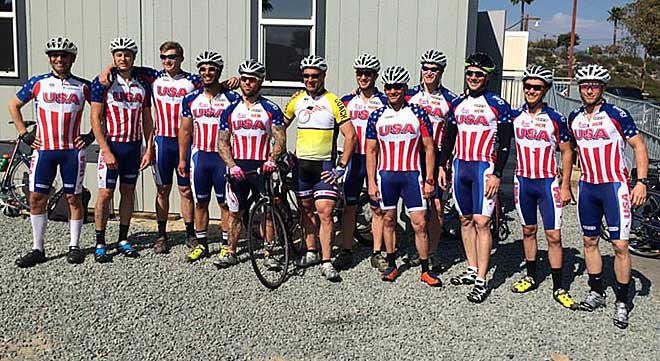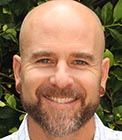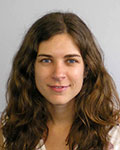
mPEAK is an intensive course in mindfulness training for those who seek to draw upon this proven practice to achieve their goals, both personal and professional, as well as attain new levels of performance and success. This cutting-edge training program is built around the latest brain research related to peak performance, resilience, focus, and “flow”. The mPEAK program enhances the human capacity of mindfulness through established and empirically supported practices and exercises, tailored to fit the needs and desires of the team, organization or individual. Mindfulness is effective precisely because it is a way of being and relating to all aspects of life, rather than a specific technique or tool for a particular goal. As with physical training, this brain training program is based upon the understanding that optimal outcomes occur most often when participants continue to engage in the practices and exercises on a daily basis as a part of their training regimen. The foundation of this program is drawn from the highly respected and empirically-supported Mindfulness-Based Stress Reduction (MBSR) program. Additionally, the program incorporates specific practices and exercises formulated to correspond to recent neuroscientific findings, competitive advances, and related research regarding optimal performance.
The mPEAK program was developed in conjunction with the US Olympic BMX Cycling Team in 2014, as a collaboration between the coaches of the team, UC San Diego neuroscientists Drs. Lori Haase and Martin Paulus, and the UCSD Center for Mindfulness leaders Executive Director Dr. Steven Hickman and Managing Director Allan Goldstein.
Objectives
At the completion of this activity, participants should be able to:
- Describe the theory and research supporting mPEAK
- Motivate themselves with encouragement rather than self-criticism
- Integrate core mindfulness exercises into daily life
- Teach simple mindfulness and mPEAK practices to patients, students, or clients
- Describe the central role of mindfulness meditation practice for fostering peak performance in the regulation of emotions and behaviors
- Articulate the rationale for an ongoing mindfulness meditation practice to derive full benefit from the mPEAK program
Target Audience
This program is designed for members of the general public, as well as for professionals who wish to integrate mindfulness practice into their work, sport or other challenging endeavors. Participating in this 3-day intensive program satisfies one of the prerequisites for becoming an mPEAK program teacher. mPEAK teacher training will begin at the UC San Diego Center for Mindfulness in 2016 or in early 2017 and further details will be discussed in more detail with those attending the course. Meditation experience is not necessary to participate in this 3-day intensive, but it can facilitate a deeper learning experience.
Training
The mPEAK 3-Day Intensive will be led by lead trainers Peter Kirchmer and co-developer of mPEAK Dr. Lori Haase. Program activities include: meditation; short talks on the relationship between neuroscientific findings, peak performance and mindfulness; experiential exercises; group discussion; and home practices. The goal is to provide a safe and supportive environment for exploring how we typically respond to challenges and opportunities and to provide tools for becoming more adept at meeting and overcoming these obstacles to achieve our goals. The emphasis of the program is on enhancing attentional and emotional resources, as well as personal capacities. For more information on mPEAK, see our website.
Followup Sessions
A sustained personal practice of mindfulness has been shown to be the key to deriving the full benefit of such training, and mPEAK’s primary intention is to support this kind of practice in our graduates. Included in the cost of the 3-day intensive are six weekly 60-minute live online video sessions with the trainers to encourage your continued mindfulness practice, provide additional information, work with challenges that arise and build group cohesion.
Participant Guidelines
The 3-Day Intensive mPEAK course is designed to be both an introduction to mindfulness skills, and a journey of self-discovery. The training will encourage careful attunement to each participant’s experience and it is an invitation for self-acceptance and self-compassion as well as mindfulness and peak performance. While mindfulness training is often relaxing and comforting, at times the practice can provoke uncomfortable sensations or feelings. Such feelings can range from inner restlessness to difficult emotions that may have been previously hidden. The instructors are committed to providing an environment of respect, safety, support, privacy, individual responsibility and compassion.
Needs Assessment
Over the past few years, mindfulness has become mainstream in the general population and is being increasingly integrated into professional practice (e.g., mental health, medical care, education, business, law). As the demand grows, the demand for quality training in these practices and techniques is growing each year. Mindfulness training for achieving peak performance is an area of burgeoning research that is following in the wake of this increased interest in mindfulness. Despite growing scientific evidence for the connection between peak performance and mindfulness training, explicit training in the application of mindfulness training in this field has been virtually non-existent until now.
Program Format
The 3-day Intensive mPEAK program is designed to closely align with the way in which mPEAK was originally developed for the US Olympic BMX Cycling Team. The 3-day program will be held in an environment where attendees can delve deeply into mindfulness practice; explore how this can support their desire to achieve, improve, create and excel; and will provide opportunities to enjoy the local activities.
Whether you are an athlete, business professional, or simply want to participate in a program that brings together the latest neuroscience and mindfulness training to enable you to be at your best, please join us by registering for the mPEAK program.
The basic mPEAK program is also formulated as an 8-week course built around four core sessions (3 hours per session) with four foundational practice sessions (2-hours per session) interwoven to solidify and deepen the practice and skills being taught in the core sessions. Refer to our 8-week mPEAK program information or mPEAK Coaching.
Tentative Schedule
Day One
- Registration and Continental Breakfast: 8:30–9:00 am
- Morning Session: 9:00 am - Noon
- Lunch on Your Own: Noon - 1:30 pm
- Afternoon Session: 1:30 pm - 5:00 pm
- Evening Open
Day Two
- Mindful Hike & Breakfast: 7:00 am - 10:00 am
- Morning Session: 10:00 am - 12:30 pm
- Lunch on Your Own: 12:30 pm – 1:30 pm
- Afternoon Session: 1:30 pm - 5:00 pm
- Evening Open
Day Three
- Early Morning Meditation Practice: 7:00 am - 8:00 am
- Continental Breakfast: 8:00 am - 8:30 am
- Morning Session: 8:30 am - Noon
Course Trainers
 Pete Kirchmer is a Life Coach, Mindful Movement Instructor and Meditation Teacher in Encinitas, CA. Pete is the mPEAK Program Director and a lead teacher in the mPEAK program. As the founder of Mindfulness Based Health, he specializes in helping his clients apply the practice of mindfulness to making healthy lifestyle changes as well as improving performance in both work and life. Pete has completed the foundational training as a Mindfulness Based Stress Reduction (MBSR) Teacher through the University of Massachusetts Oasis Institute, holds a BS in Exercise Physiology, and is a Certified Professional Life Coach through the Coaches Training institute, Center for Applied Positive Psychology and Wellcoaches. Pete is also a Master Trainer for efi Sports Medicine and certified STOTT Pilates Instructor. He is a lifetime learner and an active member of the International Coach Federation and the Harvard Institute of Coaching. Currently Pete has a private coaching practice in Encinitas, is a regular presenter at Rancho La Puerta, a world-class wellness resort in Tecate, Mexico and is on the board of directors for the Encinitas Mindfulness Community.
Pete Kirchmer is a Life Coach, Mindful Movement Instructor and Meditation Teacher in Encinitas, CA. Pete is the mPEAK Program Director and a lead teacher in the mPEAK program. As the founder of Mindfulness Based Health, he specializes in helping his clients apply the practice of mindfulness to making healthy lifestyle changes as well as improving performance in both work and life. Pete has completed the foundational training as a Mindfulness Based Stress Reduction (MBSR) Teacher through the University of Massachusetts Oasis Institute, holds a BS in Exercise Physiology, and is a Certified Professional Life Coach through the Coaches Training institute, Center for Applied Positive Psychology and Wellcoaches. Pete is also a Master Trainer for efi Sports Medicine and certified STOTT Pilates Instructor. He is a lifetime learner and an active member of the International Coach Federation and the Harvard Institute of Coaching. Currently Pete has a private coaching practice in Encinitas, is a regular presenter at Rancho La Puerta, a world-class wellness resort in Tecate, Mexico and is on the board of directors for the Encinitas Mindfulness Community.
 Lori Haase, Ph.D. is a Licensed Clinical Psychologist and a co-developer, teacher and Research Director of the mPEAK program. She completed her doctoral training through the San Diego State University/University of California, San Diego Joint Doctoral Program in Clinical Psychology. Dr. Haase's training specialized in neuropsychological assessment; however, she also received extensive training in multiple empirically supported treatments. She has experience providing clinical services to children and adults with a variety of psychological, medical and neurologic disorders. Dr. Haase is currently a psychologist at the VA San Diego Healthcare System’s Aspire Center, which is a residential rehabilitation treatment program for treatment of Veterans. In addition to her clinical training, Dr. Haase is also a neuroscientist. She is currently investigating the neural substrates of resilience and optimal performance and their modification through mindfulness training. She has worked closely with a number of different elite performers including Marines, Special Operations Forces, elite adventure racers, Olympic Swimmers, Olympic Cyclists, and RedBull Athletes. Dr. Haase has spent a number of years practicing yoga, is a mindfulness practitioner and is currently in the process of completing her teacher training in Mindfulness-Based Stress Reduction at the UC San Diego Center For Mindfulness.
Lori Haase, Ph.D. is a Licensed Clinical Psychologist and a co-developer, teacher and Research Director of the mPEAK program. She completed her doctoral training through the San Diego State University/University of California, San Diego Joint Doctoral Program in Clinical Psychology. Dr. Haase's training specialized in neuropsychological assessment; however, she also received extensive training in multiple empirically supported treatments. She has experience providing clinical services to children and adults with a variety of psychological, medical and neurologic disorders. Dr. Haase is currently a psychologist at the VA San Diego Healthcare System’s Aspire Center, which is a residential rehabilitation treatment program for treatment of Veterans. In addition to her clinical training, Dr. Haase is also a neuroscientist. She is currently investigating the neural substrates of resilience and optimal performance and their modification through mindfulness training. She has worked closely with a number of different elite performers including Marines, Special Operations Forces, elite adventure racers, Olympic Swimmers, Olympic Cyclists, and RedBull Athletes. Dr. Haase has spent a number of years practicing yoga, is a mindfulness practitioner and is currently in the process of completing her teacher training in Mindfulness-Based Stress Reduction at the UC San Diego Center For Mindfulness.
Frequently Asked Questions
What time should I plan to arrive? When do we finish?
We will begin checking people in at 8 am on the first day of the training. We plan to end the training by 1:00 pm on the last day so please plan your travel accordingly, using the time guidelines above. Sometimes situations arise in which people have to leave the training earlier than noon on the last day but we strongly urge you to avoid this if at all possible.
What do I need to bring?
If it is at all possible, please bring a meditation cushion (zafu) and a yoga mat. We will have a few cushions but not enough to go around, so if you have one and can squeeze it into your luggage or bring it as a carry-on please consider doing so. It is always advisable to check the weather forecast prior to traveling, to help guide you in proper clothing choices.
What should I expect regarding the format of the training?
This training is taught in an intensive experiential format, which means there is a great deal of mindfulness practice embedded in the training, and we want to reiterate that now so you are not surprised when you get here.
What should I read prior to arriving?
Check the "Schedule and Required Reading" page of the specific training you are registered to attend.
What if I require some special accommodations or have dietary restrictions?
While you are asked to note specific food restrictions on your registration application, if there are any additional food or medical concerns we should be aware of please let us know of these in advance so we may assist you.
Disclosure
It is the policy of the University of California, San Diego Center for Mindfulness to ensure balance, independence, objectivity and scientific rigor. All persons involved in the selection, development and presentation of content are required to disclose any real or apparent conflicts of interest. All conflicts of interest will be resolved prior to an educational activity being delivered to learners through one of the following mechanisms: 1) altering the financial relationship with the commercial interest, 2) altering the individual’s control over CE content about the products or services of the commercial interest, and/or 3) validating the activity content through independent peer review.
Recommended Reading
- All books are available on our Amazon Bookshelf.
- Mindfulness and Performance (current perspective in social and behavioral sciences) edited by Amy Baltzell; chapter 9 is devoted to mPEAK
- Resilience: The Science of Mastering Life’s Greatest Challenges by Steven M. Southwick
- The Mindful Athlete: Secrets of Pure Performance by George Mumford
- The Mindful Brain: Reflection and Attunement in the Cultivation of Well-Being by Daniel J. Siegel
- The Rise of Superman: Decoding the Science of Ultimate Human Performance by Steven Kotler
- Hardwiring Happiness: The New Brain Science of Contentment, Calm, and Confidence by Rick Hanson
- Buddha’s Brain by Rick Hanson
- Flow: The Psychology of Optimal Experience by Mihaly Csikszentmihalyi
- The Mindful Path to Self-Compassion by Christopher Germer

